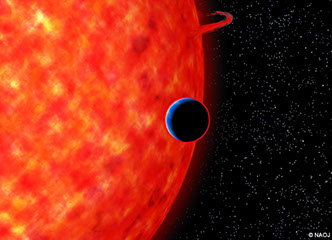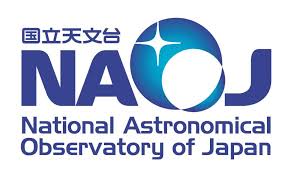Challenge to Super-Earths and Their Atmospheres
DTA SYMPOSIUM VIII
―Where do they come from?
6 - 8 March 2018
National Astronomical Observatory of Japan (NAOJ)
Tokyo, Japan
The Kepler/K2 mission and ground-based surveys have revealed the prevalence of super-Earths for which have no siblings in the Solar System and the diversity of exoplanetary systems. The TESS mission that is scheduled to launch in early 2018 and high-precision NIR RV surveys will pursue super-Earths and sub-Neptunes around cool stars. In the rapidly growing field, the aim of this workshop is to better understand the origin and evolution of super-Earths' atmospheres and explore the linkages between bulk compositions of super-Earths and their formation pathways. The workshop will bring people together with expertise in different sub-fields and provide a springboard for promoting collaborations between researchers with different perspectives.
Objectives:
Formation and evolution of super-Earths and sub-Neptunes (SENs)
Primary and secondary atmospheres of SENs
Retention and loss of planetary atmospheres
Atmosphere-magma ocean/ocean interactions
Spectroscopy and photometry of SENs
Future missions toward characterization of SENs

Confirmed Speakers:
Eugene Chiang (UC, Berkerley) Michiel Lambrechts (Lund University)
Ian Crossfield (MIT) Jack Lissauer (NASA Ames)
Yuka Fujii (ELSI) Norio Narita (Univ. of Tokyo)
Akihiko Fukui (NAOJ) Laura Schaefer (Arizona State Univ.)
Keiko Hamano (ELSI)
DTA Symposium Organizers:
Masahiro Ogihara (NAOJ)
Yasunori Hori (Astrobiology Center/NAOJ)
Hiroyuki Kurokawa (ELSI)
Eiichiro Kokubo (NAOJ)
Scientific Advisory Committee:
Shigeru Ida (ELSI)
Registration closed
Abstract submission closed
by 14 Feburary 2018 (JST) by 14 January 2018 (JST)
The registration may be closed before the stated date due to a conference hall with a limited capacity. We actively encourage you to consider an early-bird registration.
Researchers from China, Vietnam, Philippines, India, Russia, CIS countries, Brazil, Colombia, Peru, and South Africa are required to apply for a visa to enter Japan. We will give you a hand with that. It may take one month to get your short-term stay visa issued. Please inform LOC of your itinerary ASAP.
Sponsored by
For more information or if you have any questions, contact us: dta2018(at)th.nao.ac.jp

